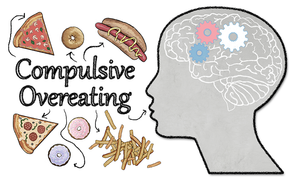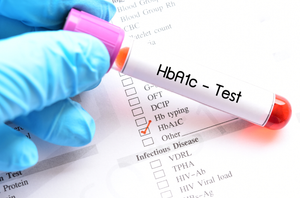Many people have made the new year’s resolution “to lose weight,” so many times, they’ve become discouraged, embarrassed, or have stopped making it altogether. First of all, I honor and respect those who remain positive and keep trying, but I also do understand those who have quit trying. We all know that a healthy diet and exercise are key to weight loss, but did you realize there may be stealth hormonal saboteurs working behind the scenes to trigger overeating thus hindering weight loss?
Hormonal Changes Can Trigger Overeating
There are countless articles discussing stress eating, comfort eating, emotional eating, binge eating, and various ways to try to make yourself stop doing it. As women already know, hormonal cycles and changes can play a big part in emotional and binge-types of eating patterns.1,2 But what about the perimenopausal, menopausal, and post-menopausal years? Well, our hormones are constantly giving us messages to regulate our bodies’ systems, and they don’t stop doing so in mid or later life. In fact, many times, in the peri- and menopausal years, our hormones can give us messages that trick us into overeating resulting in unsightly and dangerous belly fat. One of the messages our hormones give us is whether or not we are hungry or satiated (satisfied with how much we’ve eaten and don’t want to eat anymore). Hunger, and the feeling of satiety, or of being “full,” is basically controlled by a combination of things: the hormone-producing region of the brain called the hypothalamus, the blood sugar level, and nerve signals and hormones from your gut, with the goal of maintaining an internal balance–a sort of controlled atmosphere called, “homeostasis.”3 “Gut hormones have various physiological functions that include specifically targeting the brain to regulate appetite.”4
Insulin and Insulin Resistance
Insulin is the hormone that regulates blood sugar (glucose). Insulin lets the body use glucose from carbohydrates for instant energy, or store glucose for use at a future time.5 Insulin resistance is a situation wherein the body does not utilize insulin properly, and cells have become resistant to the signal from the hormone, insulin, to transport on sugar for use and lower blood sugar. The body then needs more insulin for any given level of blood sugar to make glucose move into cells, and to make blood sugar stable again. When someone with insulin resistance eats carbohydrates or sugar and their blood sugar spikes, their insulin has to spike also in order to take care of the increase in blood sugar. Insulin is an anabolic (building) hormone for fat the way testosterone is for muscle.6 Translation: INSULIN SPIKES PACK ON THE POUNDS! Making the insulin receptor work more efficiently by improving insulin resistance stops the insulin spikes, and can aid in weight loss.
But the question of the century is: How does one lower insulin resistance? We all know that getting more exercise, eating our veggies, and getting proper sleep is a start…but is there more? Read “Stopping Hormonal Triggers that Hinder Weight Loss – Part II,” and find out!




